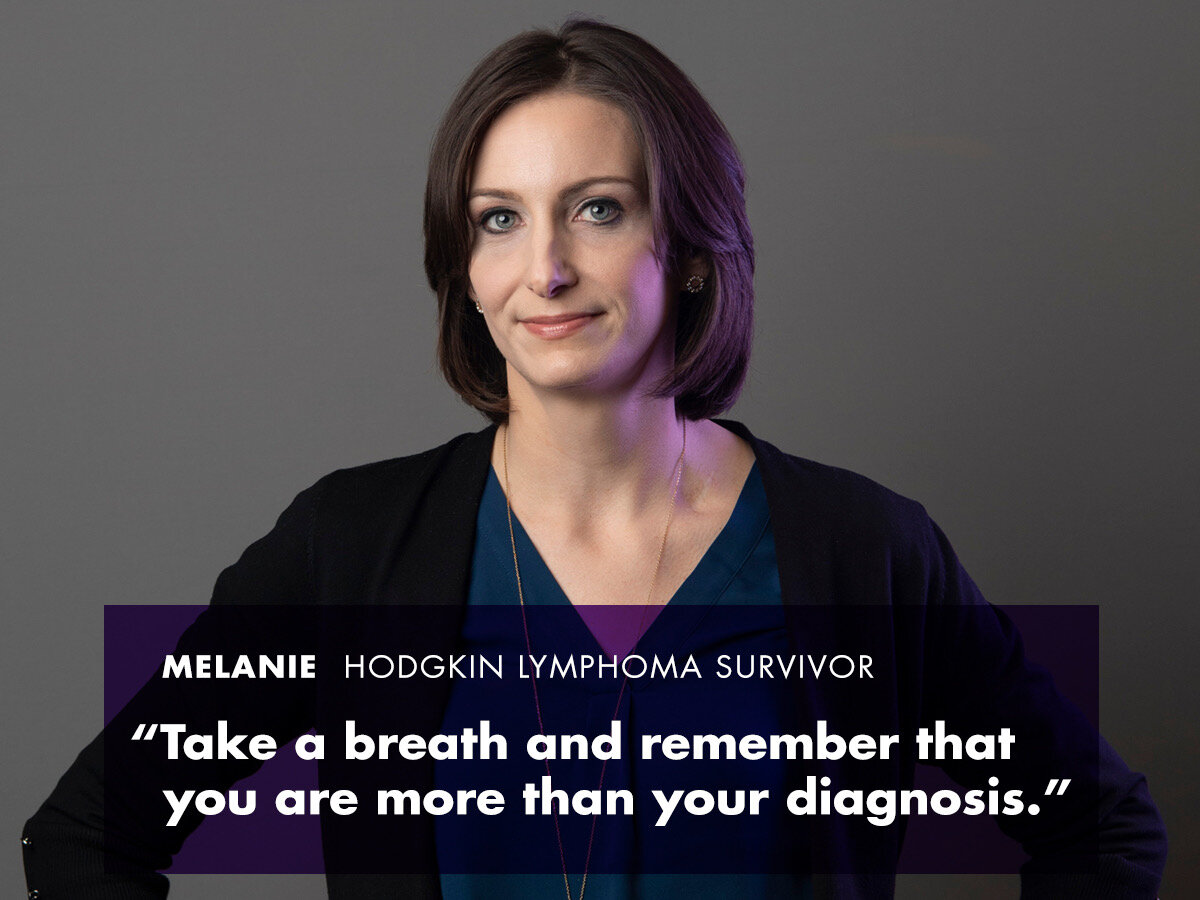“It’s better to light a candle than curse the darkness.” -Chinese Proverb
Today marks three years in remission.
It’s my re-birthday of sorts —a day to celebrate beating cancer.
I didn’t have the words or time to truly celebrate being cancer-free when my doctor told me I was officially cancer-free.
I was halfway through chemo.
I had four more months of treatment and tests to make it through before I felt comfortable celebrating.
Getting told I was cancer-free was a welcome relief, but I was still frightened of what could come next.
There was no evidence of disease, so why did I have to continue treatment?
I was told finishing treatment would help give me the best chance at long-term remission.
Looking back, there were definitely more tears than celebrating my first year in remission.
At the same time, I was told I was cancer-free—my hair was nearly all gone.
I “beat” cancer, but I felt like my body was slowly falling apart the longer treatment went on.
Knowing my body was healing while simultaneously watching myself transform into someone else before my eyes was a bittersweet feeling I’ll never forget.
It was hard to celebrate being cancer-free the first year.
I survived cancer, yet I felt like I lost so much of myself in the process and still had so much longer to go in treatment.
I’m now blessed to count my remission in years, and I’m slowly becoming more of a survivor than a fighter.
The more time passes from treatment, the more I find myself excitedly looking ahead to the future. It’s a nice change of pace from years of constantly looking behind and all around me for signs of relapse.
The fear of cancer or another severe illness will always be there.
But I refuse to let it consume my every thought.
With each passing day, cancer seems to move further back in my mind.
The farther I go in my journey, the more I realize healing from cancer is not about going to “war” and fighting all the cancerous cells in your body. It requires sending those parts of your body love and compassion.
Cancer taught me there is a light and dark side to everything.
Sometimes we have to be fully immersed in darkness to see the light.
But once we find the light—everything changes.
Some days it’s easier than others.
Some days my fear of relapse or illness is all-consuming.
But I’ve found no matter what you’re facing— your thoughts have power.
You may not always be able to change your situation, but you can always alter your perceptions.
So in honor of my cancerversary, here are the top 3 things I’m working on moving forward:
1. Prioritizing My Health & Making Healthy Choices Empowers Me
Since cancer treatment, I overhauled my diet completely. I went dairy and gluten-free, and I try to eat natural, whole organic foods whenever possible. Staying active and moving my body helps calm anxious thoughts. Focusing on what I put into my body and getting more active helps empower me to focus on what I can control.
2. Stay Curious & Keep Questioning
Curiosity is the ultimate weapon against fear. We only truly fear what we do not know, so learning all we can about the challenges we face helps us make the most informed decisions regarding our health.
3. Becoming Aware of Stories I’m Telling Myself
Most anxiety stems from the false stories we tell ourselves. These false stories are the worst-case scenarios we constantly replay in our heads. They are false beliefs about ourselves and our worthiness that cloud our relationships with others and impact our ability to fully heal. When my anxiety gets overwhelming, I try to take a step back. Meditation, breathwork, and prayer help ground me to the present moment by helping me realize what I can and cannot control.
Remission taught me there is a thin line separating cancer survivors and fighters.
The more time that passes from treatment, the more I see cancer as more of a blessing than a curse or something I will have to continue to fight for the rest of my life.
Cancer was God’s way of showing the parts of myself that I need to recognize, honor and heal.
Cancer stripped away all that I thought I was and is helping carve me into who I hope to be.
I have to focus on what I can control and leave the rest to God.
After all, surviving cancer isn’t about moving on; it’s about moving forward with hope and faith the future will be better.
Celebrating My Survivorship
On June 6th, 2021 I will be participating in Lurie Cancer Center’s 28th Annual Cancer Survivors’ Celebration Walk & 5K.
This year, I plan to celebrate National Cancer Survivors Day by hiking in beautiful Sedona, AZ.
Although I’ll miss gathering in person this year, I’m excited to celebrate virtually with cancer survivors around the world.
This event is a great way to honor and celebrate cancer survivors, inspire the recently diagnosed, accelerate vital research, and to help improve the lives of patients after treatment ends.
Help make a difference in the lives of cancer patients and their families by joining me virtually or supporting my fundraising goal.










